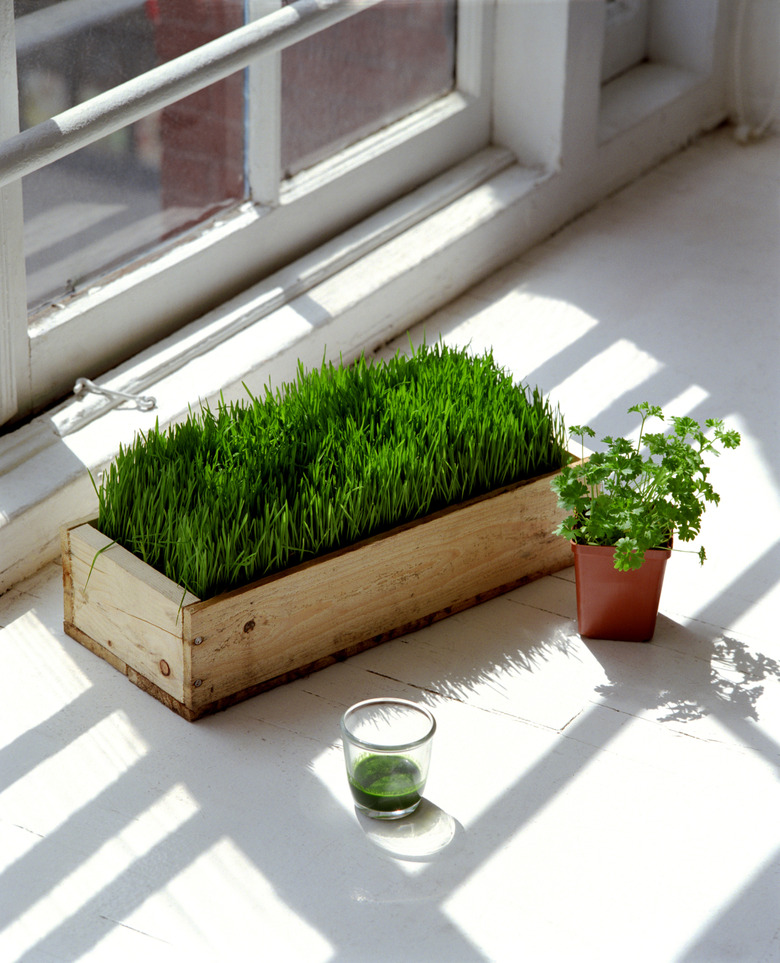Science Fair Project For Testing Different Soils With Plant Growth
Science fair projects use a student's creativity to teach scientific methods. While the possible projects are almost limitless, a straightforward project, such as testing soil types' impact on plant growth, will provide clear, observable results for the student to study.
Choosing Your Soils
Choosing Your Soils
Soils are a mixture of three particles – sand, silt and clay – along with organic matter, water and air. Soil differences are the result of different mixtures of these particles. Since this project will test the growth in different soil types, choose at least two soils with distinct differences. For example, choose one soil with high sand content and another with high clay content. This will make the differences between the soils easier to spot.
The Experiment
The Experiment
Fill paper cups or other growing vessels with the soils, marking each vessel to keep the soil types separate. Plant the same type of seeds in each vessel. The seeds should be planted at the same depth and spaced the same in each vessel. Follow the seed packet's instructions to properly water and care for the plants, ensuring you treat each vessel in the same way so that plant differences are not the result of differences in your care of each vessel.
What to Measure
What to Measure
The purpose of this experiment is to observe differences between the plants as they grow in different soils. This can be measured in any way appropriate for your plant. For example, you could measure the height, width, number of leaves, how fast the plants grow, number of flowers or yield of seeds or fruits. The results of your experiment will be clearer if you use objective measurements, rather than subjective descriptions of the plants.
Presenting Your Results
Presenting Your Results
Science fairs may prescribe a required format for presentation of your results. For example, you may be required to present data tables or graphs to support your conclusion instead of simply reporting which soil type was best for your plants. Therefore, it is important for you to keep accurate records throughout your experiment for later inclusion in your presentation. Graphs, descriptions of your methods and pictures will help the judges and teachers understand your experiment and the level of work you put into your project.
References
- University of Illinois Extension: Natural Resources, the Environment and Ecosystems: Soil and Ecosystems
- United States Department of Agriculture: Agricultural Ideas for Science Fair Projects: Environmental Sciences
- Selah School District: The Effect of Different Potting Soil Mixtures on Radish Growth
Cite This Article
MLA
J.D., Heather Frances. "Science Fair Project For Testing Different Soils With Plant Growth" sciencing.com, https://www.sciencing.com/science-fair-project-testing-different-soils-plant-growth-12062125/. 24 April 2017.
APA
J.D., Heather Frances. (2017, April 24). Science Fair Project For Testing Different Soils With Plant Growth. sciencing.com. Retrieved from https://www.sciencing.com/science-fair-project-testing-different-soils-plant-growth-12062125/
Chicago
J.D., Heather Frances. Science Fair Project For Testing Different Soils With Plant Growth last modified August 30, 2022. https://www.sciencing.com/science-fair-project-testing-different-soils-plant-growth-12062125/
